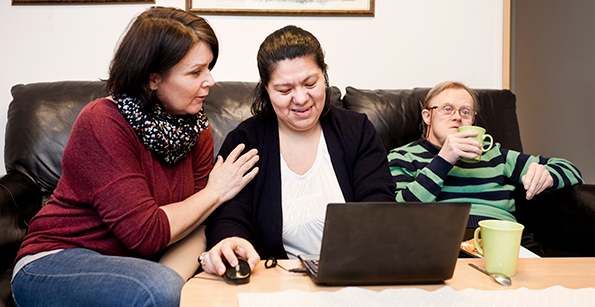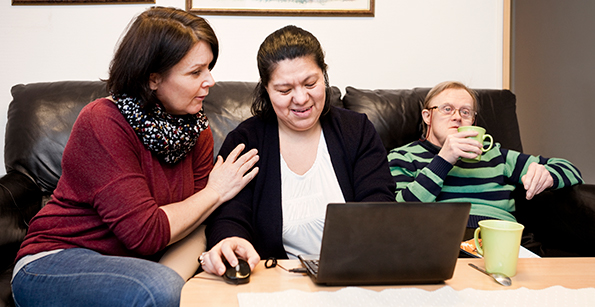
IDemocracy, a European project in which the Universitat Politècnica de València (UPV) participates together with Plena Inclusión Comunitat Valenciana and other European partners, intends to increase the competencies related to the exercise of democratic rights in the digital society in the group of people with disabilities and support personnel.
The exercise of participation, representation and the right to vote of people with intellectual disabilities are essential for the development of their democratic rights. But as the UPV researcher Juan José Lull explains, this group collides with important barriers and considers that “just as an effort is being made to eliminate architectural barriers for people with physical disabilities, it is necessary to eliminate the barriers that separate people with intellectual disabilities of the use of their democratic rights”.
«In the digital society, people come together and make proposals» and cites as an example the change.org platform and social networks, as means to achieve democratic changes. “However, these platforms are not suitable for easy use by people with intellectual disabilities. Furthermore, in general, there is not an interest for this group to exercise their democratic rights.»
Reducing the digital divide
Participation in digital social platforms, remote voting through digital certificates, and other digital literacy measures are crucial for democratic development. But the use of ICT is a challenge for people with intellectual disabilities that forms a digital divide between them and the rest of society, a gap that IDemocracy wants to reduce, with a budget of € 230,000.
It is very difficult for a person with an intellectual disability to come to represent a group «if the platforms that could give them a voice are not adequate in their accessibility, nor are the people trained in their use,» explains Lull, a member of the SABIEN research group of ITACA Institute of UPV.
The European IDemocracy project, framed in the ERASMUS + Programme, seeks to increase the competences related to the exercise of democratic rights in the digital society, of people with intellectual disabilities and their support people.
The project will develop an innovative training methodology focused on organization, community and political levels. The preparation of training materials adapted to each target group and an electronic training tool are also planned to support the implementation of the training methodology. In addition, pilot validation actions will be carried out with the participation of just over 100 people from Spain, Portugal, Croatia, Greece and Lithuania.
The role of the UPV in the project
On the part of the UPV, the research group SABIEN-ITACA, will be in charge of the implementation of information technologies in the project. For example, it will develop the online learning platform to facilitate digital literacy for people with intellectual disabilities. It will also be responsible for the creation of platforms in which to facilitate the use of rights of said people, mainly at the organization and community levels. “The platform will be co-created with people with intellectual disabilities. Currently there are platforms such as kuorum.org in which democratic participatory systems can be created (for example, to vote on a certain issue by the population in a town hall) ”, explains UPV researcher Juan José Lull.
With this tool, people with intellectual disabilities will be able to launch their proposals and follow up. Also, other people will be able to vote for them.
IDemocracy began in November 2020 and is scheduled to conclude in October 2022. The project is led by Plena Inclusión Comunitat Valenciana with the participation of other European entities specialized in intellectual disabilities.
Source: UPV’s Information Office



